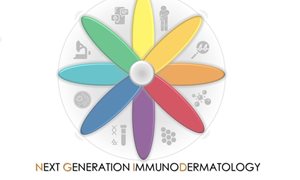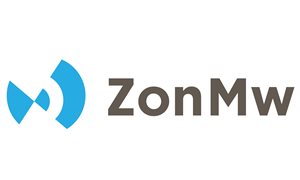27 February 2020
Transdisciplinary consortium to focus on common biomarkers in Ulcerative Colitis and Atopic Dermatitis.
Radboudumc collaborates with 25 European partners on dissecting common disease mechanisms of Ulcerative Colitis and Atopic Dermatitis in the new research project ImmUniverse, aimed at improving diagnostic and therapeutic options for patients living with these conditions. Through molecular and immune profiling techniques, the team will identify signatures of biomarkers and mechanistic principles which reveal information on disease severity and progression enabling personalised therapy decisions for each patient at the right time. The project was granted a budget of EUR 31 million provided by the Innovative Medicines Initiative (IMI 2), a joint initiative of the European Union and the EFPIA (European Federation of Pharmaceutical Industries and Associations), and is coordinated by Humanitas University in Milan.
Immune-mediated inflammatory diseases (IMIDs) are an increasing medical burden in industrialised countries worldwide. They are characterised by an enormous heterogeneity with regard to disease outcome and response to targeted therapies, which often cannot be adequately tailored to individual patients. Hence, an in-depth understanding of this heterogeneity and the biomarkers which predict disease control and therapy response over time are important prerequisites for future precision medicine strategies in IMIDs. The pathogenic components (“omics”) responsible for the disease outcome in each individual patient, i.e. environment, genes, gut microbiota or the immune system, are remarkably multifactorial, with thousands of constituents all interacting with and impacting on each other.
ImmUniverse has been formed as a European transdisciplinary consortium to tackle the unmet needs and pave the way towards a truly personalised disease understanding of two different IMIDs: Ulcerative Colitis and Atopic Dermatitis. Irma Joosten, local coordinator: "Through a unique collaboration between the departments dermatology, Elke de Jong, Ellen van den Bogaard), Gastroenterology Frank Hoentjen, and Medical Immunology, Hans Koenen, all theme Inflammatory diseases, we will be able, together with our consortium partners, to embark on an extensive cross-disease -omics quest, where we will systematically compare profiles and interactions between recirculating immune cells and the respective tissue microenvironment. In a prospective study, and unlike previous studies in the field, we will specifically compare signatures from the same individual over time, capturing the full range of disease activity. The novel, circulating (immune)biomarker assays are expected to improve diagnosis, inform about disease severity and progression early in the clinical course, and enable treatment response and remission monitoring."


Transdisciplinary consortium to focus on common biomarkers in Ulcerative Colitis and Atopic Dermatitis.
Radboudumc collaborates with 25 European partners on dissecting common disease mechanisms of Ulcerative Colitis and Atopic Dermatitis in the new research project ImmUniverse, aimed at improving diagnostic and therapeutic options for patients living with these conditions. Through molecular and immune profiling techniques, the team will identify signatures of biomarkers and mechanistic principles which reveal information on disease severity and progression enabling personalised therapy decisions for each patient at the right time. The project was granted a budget of EUR 31 million provided by the Innovative Medicines Initiative (IMI 2), a joint initiative of the European Union and the EFPIA (European Federation of Pharmaceutical Industries and Associations), and is coordinated by Humanitas University in Milan.
Immune-mediated inflammatory diseases (IMIDs) are an increasing medical burden in industrialised countries worldwide. They are characterised by an enormous heterogeneity with regard to disease outcome and response to targeted therapies, which often cannot be adequately tailored to individual patients. Hence, an in-depth understanding of this heterogeneity and the biomarkers which predict disease control and therapy response over time are important prerequisites for future precision medicine strategies in IMIDs. The pathogenic components (“omics”) responsible for the disease outcome in each individual patient, i.e. environment, genes, gut microbiota or the immune system, are remarkably multifactorial, with thousands of constituents all interacting with and impacting on each other.
ImmUniverse has been formed as a European transdisciplinary consortium to tackle the unmet needs and pave the way towards a truly personalised disease understanding of two different IMIDs: Ulcerative Colitis and Atopic Dermatitis. Irma Joosten, local coordinator: "Through a unique collaboration between the departments dermatology, Elke de Jong, Ellen van den Bogaard), Gastroenterology Frank Hoentjen, and Medical Immunology, Hans Koenen, all theme Inflammatory diseases, we will be able, together with our consortium partners, to embark on an extensive cross-disease -omics quest, where we will systematically compare profiles and interactions between recirculating immune cells and the respective tissue microenvironment. In a prospective study, and unlike previous studies in the field, we will specifically compare signatures from the same individual over time, capturing the full range of disease activity. The novel, circulating (immune)biomarker assays are expected to improve diagnosis, inform about disease severity and progression early in the clinical course, and enable treatment response and remission monitoring."
Related news items

Large NWA ORC grant awarded for national skin research: Next Generation ImmunoDermatology
23 March 2022Research for better treatment methods for chronic skin diseases.
go to page
2.5 million Euros for cancer research into ovarian cancer and immunotherapy
15 April 2021 The Radboudumc receives 2.5 million Euros from the Dutch Cancer Society (KWF) for three studies to ensure oncological progress during COVID-19 period. go to page
ZonMw grants to study optimal use of COVID-19 vaccines in patients with impaired immune systems
3 February 2021 How do people with reduced immunity, especially kidney patients, react to a COVID-19 vaccination? And how can patients with peripheral arterial disease be helped by DNA testing? Our researchers received grants from ZonMw to make these studies possible. go to page
Researchers investigate how stem cells affect the immune system
18 February 2020 RIMLS researchers Irma Joosten and Renate van der Molen, participating in an European study into the treatment of brain damage in premature babies. Is it possible to limit or even partly repair the damage with stem cells? They focus primarily on the effect of those stem cells on the immune system. go to page
It is raining Horizon 2020 grants for RIMLS researchers
15 August 2019 Horizon 2020 is the biggest EU Research and Innovation programme ever with nearly €80 billion of funding available and running from 2014 to 2020. This summer, no less than 8 proposals for the Radboudumc have been accepted, 4 of them even as a coordinator. go to page
